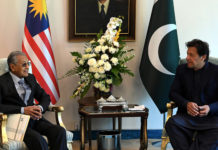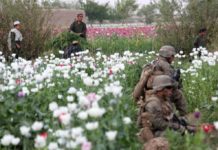By Muhammad Luqman
World Bank President David Malpass will visit Pakistan by the end of current month to celebrate Islamabad’s inclusion among top-20 global reformers and to launch a future strategy for bringing improvement in the current overall poor rating on the Ease of Doing Business Index, according to media reports.
The World Bank president and Prime Minister Imran Khan are expected to co-chair a meeting of the Steering Committee on Doing Business Reforms to approve the future strategy, said officials of the Board of Investment (BOI).
The World Bank chief will in Islamabad on October 31 to celebrate Pakistan’s inclusion among top-20 global reformers on the Ease of Doing Business Index, according to English newspaper, Express Tribune.
The World Bank has listed Pakistan among the top-20 countries that introduced six reforms in the ease of doing business. The Washington-based lender and consultant will formally release its Ease of Doing Business Report this week.
Pakistan can easily implement two more reforms in the areas of getting credit and enforcing contracts. Laws had been passed by parliament but bureaucrats of the Ministry of Finance and State Bank of Pakistan were sitting on these laws and had not issued requisite rules and regulations, said the BOI officials.
In October last year, Pakistan had jumped up 11 places on the Ease of Doing Business Index and got 136th position – for the first time in 15 years – on the basis of reforms introduced in the last year of Pakistan Muslim League-Nawaz (PML-N) government.
Out of nine reforms, the World Bank has acknowledged six reforms this year, recognising Pakistan as the top reformer in South Asia. China, with eight reforms to its credit, is the overall champion this year. Saudi Arabia is another country that has also introduced significant reforms this year.
However, there was no direct co-relation between the number of reforms and the country’s ranking, said the BOI officials.
This year, Pakistan improved in six areas which included starting a business, dealing with construction permits, getting electricity, registering property, paying taxes and trading across borders, said the World Bank.
Two out of the six reforms that the World Bank accepted this year were directly related to the work done by the last PML-N government. These were getting electricity and registering property.
The remaining four were the result of work done in the past one year by the governments of Pakistan Peoples Party (PPP) in Sindh and the Pakistan Tehreek-e-Insaf (PTI) in Punjab.
The World Bank carries out surveys in Lahore and Karachi to get feedback of the business community about reforms introduced in Pakistan.
The Ease of Doing Business Index is mostly used as a guide by foreign investors to learn more about a country, aiding decisions on pouring money into the economy.
The World Bank for the first time acknowledged that Pakistanis were getting largely uninterrupted power supplies. The improvement on account of registering property was because of computerised Punjab land record, an initiative of the government of former chief minister Shehbaz Sharif.
The BOI officials said they requested the Prime Minister’s Office to arrange a meeting of the steering committee on October 31 for approving a three-year ease of doing business strategy.
The statutory steering committee is headed by PM Imran with the finance minister, investment adviser, Board of Investment (BOI) chairman, overseas Pakistanis adviser, Federal Board of Revenue chairman, Securities and Exchange Commission of Pakistan (SECP) chairman and the State Bank of Pakistan (SBP) governor as its members.















